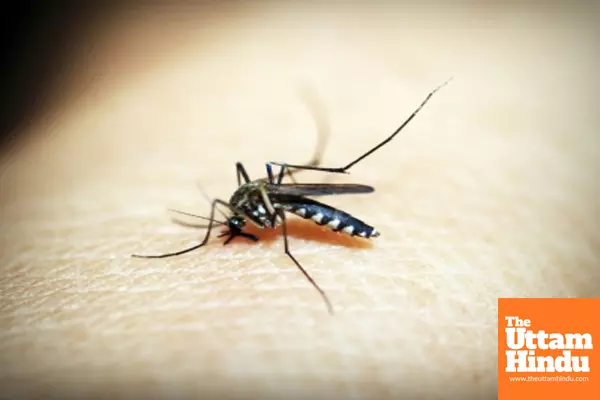
Malaria declines by 80% in India, Country aims for Elimination by 2030

New Delhi (The Uttam Hindu): The Indian government reported a significant decline in malaria cases and deaths, with reductions of around 80% from 2015 to 2023. Cases fell from 1.17 million in 2015 to just 227,564 in 2023, while malaria-related deaths dropped from 384 to 83. The government aims to achieve a malaria-free status by 2030. In 2023 ,122 districts across various states reported zero malaria cases, according to the Ministry of Health and Family Welfare. At the time of India's independence in 1947, malaria was a major public health challenge, with 75 million cases annually and 800,000 deaths. Since then, extensive efforts have led to a 97% reduction, with cases falling to just 2 million and deaths to 83 by 2023. The World Health Organization (WHO) celebrated India’s progress in its World Malaria Report 2024, noting significant reductions in malaria cases and deaths between 2017 and 2023. This progress also led to India’s exit from the WHO’s High Burden to High Impact (HBHI) group in 2024, marking a major milestone in the country's malaria control efforts. From 2015 to 2023, many states transitioned from high-burden to low-burden or zero-burden categories. While 10 states and Union Territories were in the high-burden category in 2015, only two states—Mizoram and Tripura—remained in that group by 2023. States like Odisha, Chhattisgarh, Jharkhand, and Meghalaya moved to a significantly lower burden category, and Andaman and Nicobar Islands, Madhya Pradesh, Arunachal Pradesh, and Dadra and Nagar Haveli achieved Category 1 status by 2023.
Intensified surveillance efforts have led to a rise in the Annual Blood Examination Rate (ABER), increasing from 9.58 in 2015 to 11.62 in 2023. This enhanced surveillance has enabled early detection, timely intervention, and more effective treatment. Integrated Vector Management (IVM), a key strategy in India’s malaria control efforts, includes methods like Indoor Residual Spraying (IRS) and the distribution of Long-Lasting Insecticidal Nets (LLINs) to reduce mosquito populations. Additionally, targeted management of the Anopheles stephensi mosquito has bolstered urban malaria control. These initiatives have been pivotal in India’s path toward achieving its malaria-free goal by 2030, demonstrating the country’s commitment to public health and disease control.

